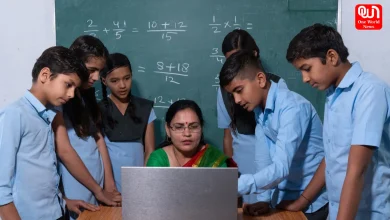Nipah Virus Alert: Risks, Symptoms, and Care
The reappearance of the Nipah virus in Kerala's Kozhikode district led to a health alert. Dr Harish Chafle highlighted transmission risks, symptoms, and the absence of specific treatment as of September 2021.
Nipah Virus Alert: Risks, Symptoms, and Care – Expert Insights and the absence of specific treatment as of September 2021.
The reappearance of the potentially fatal Nipah virus in Kerala’s Kozhikode district has prompted the state health department to issue a health alert. This comes after two suspicious deaths and the identification of four individuals with high-risk exposure, including a 9-year-old boy on ventilator support. While the child’s condition has improved, pending test results have kept health experts cautious.
Kerala has finally taken a sigh of relief amid #Nipah virus alert.
This comes as no new cases of the deadly virus have been detected in the last 2 days. @Thoyajakshi1 reports | #NipahVirus pic.twitter.com/1zxR4wvWSJ
— Mirror Now (@MirrorNow) September 18, 2023
Dr Harish Chafle, a Consultant Intensivist and Chest Physician at Global Hospitals in Parel Mumbai, emphasized that the Nipah virus is a zoonotic infection, transferable from animals to humans. Vigilance is crucial as severe cases can lead to a coma within 24-48 hours, with fatal outcomes. According to him, Nipah virus infection can manifest with a variety of symptoms, which may include:
- Fever
- Headache
- Fatigue
- Muscle Pain
- Respiratory Distress
- Encephalitis (Inflammation of the Brain)
Read more:- Nipah Virus in Kerala: Health Alert In Kozhikode After 2 Unnatural Deaths!!
Lockdowns begin in India
India on Alert to Contain Outbreak of Deadly Nipah Virus
Authorities in southern India scaled up efforts to contain an outbreak of Nipah virus after two people died of the disease, which originates in animals and can in severe-https://t.co/40TUOOG2bD
— QFS – GESARA – NESARA (@NesaraGesara0) September 18, 2023
Highlighting the gravity of severe Nipah virus infections, Dr Harish Chafle cautioned against several primary risk factors and transmission routes:
- Animal Reservoirs: The natural hosts of the Nipah virus are fruit bats. Human exposure to these bats, either directly or indirectly through contact with their excretions or saliva, can lead to transmission.
- Consumption of Contaminated Food: Ingesting fruits or juices tainted with bat saliva or urine can result in infection.
- Human-to-Human Transmission: Once an individual is infected, the Nipah virus can also spread through close contact with infected persons, particularly in healthcare settings.
Dr. Chafle emphasized that as of his last update in September 2021, there was no specific antiviral treatment for Nipah virus infection.
Read more:- Nipah Virus Outbreak in Kerala
He recommended crucial supportive care measures:
Isolation: Isolating patients is vital to prevent further transmission of the virus.
Symptomatic Treatment: Managing symptoms like fever and pain is essential to improve the patient’s comfort.
Intensive Care: Severe cases may necessitate intensive care, including mechanical ventilation to address respiratory distress.
Experimental Treatments: While some experimental treatments and antiviral drugs have been explored, their efficacy remains uncertain.
Liked this post?
Register at One World News to never miss out on videos, celeb interviews, and best reads.








